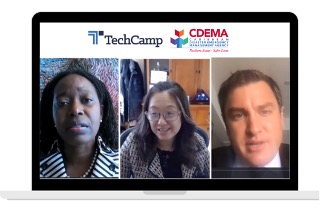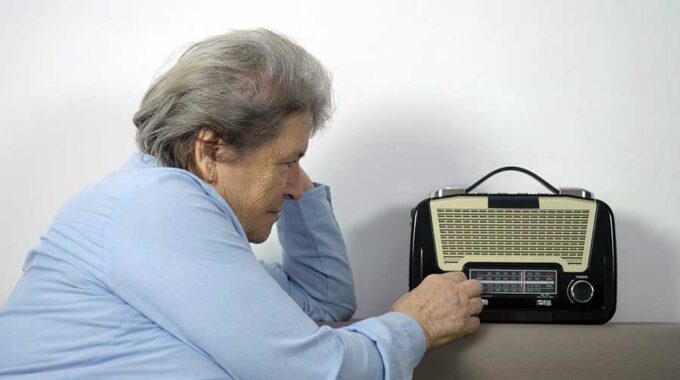Bridgetown, Barbados, 19 February 2021 (CDEMA) – A virtual meet and greet session for participants of the Crisis Communication TechCamp took place on Wednesday, February 17, 2021. The event was coordinated by the Caribbean Disaster Emergency Management Agency (CDEMA), U.S. Embassies of the Eastern Caribbean, and ECA TechCamp.
The event brought together over 30 journalists, government information officers, disaster management professionals, and social media influencers from countries throughout the English-speaking Caribbean. It was the first event ahead of a second virtual session on Digital Storytelling scheduled in April 2021; and the face-to-face convening which has been postponed to May 2022, due to the current COVID-19 restrictions. The series of events aims to provide participants with digital tools and training to decipher disinformation in crisis situations such as natural disasters.
In her opening remarks to participants, U.S. State Department Acting Assistant Secretary, Julie Chung stated: “Through TechCamps such as this one, we bring together people like you who are making a difference in their communities and countries. As journalists and media practitioners, the work you do on the frontlines is vital to informing the public and improving conditions across the region.”

CDEMA Acting Executive Director, Elizabeth Riley, underscored the importance of the role that crisis communications plays and spoke to the uncertainty, changing dynamics and extended timeline around COVID-19 and La Soufriere Volcano in St. Vincent and the Grenadines. She remarked that “both events have proved to be an additional challenge that requires more than basic crisis communication tactics. Rather, an adaptive approach is required at the different phases of these multi-layered events.”
She challenged attendees to “think about how the successes and lessons learned from crisis communications around COVID-19 and La Soufriere can be used to effect better communication around other disruptive events in the future; and how ICT, social media and other alternative forms of communications can be leveraged more effectively to minimize morbidity and mortality.”
In break-out sessions, participants took the opportunity to network and share their experiences, technology preferences, challenges and skills gaps in the context of crisis communications in disaster scenarios.



